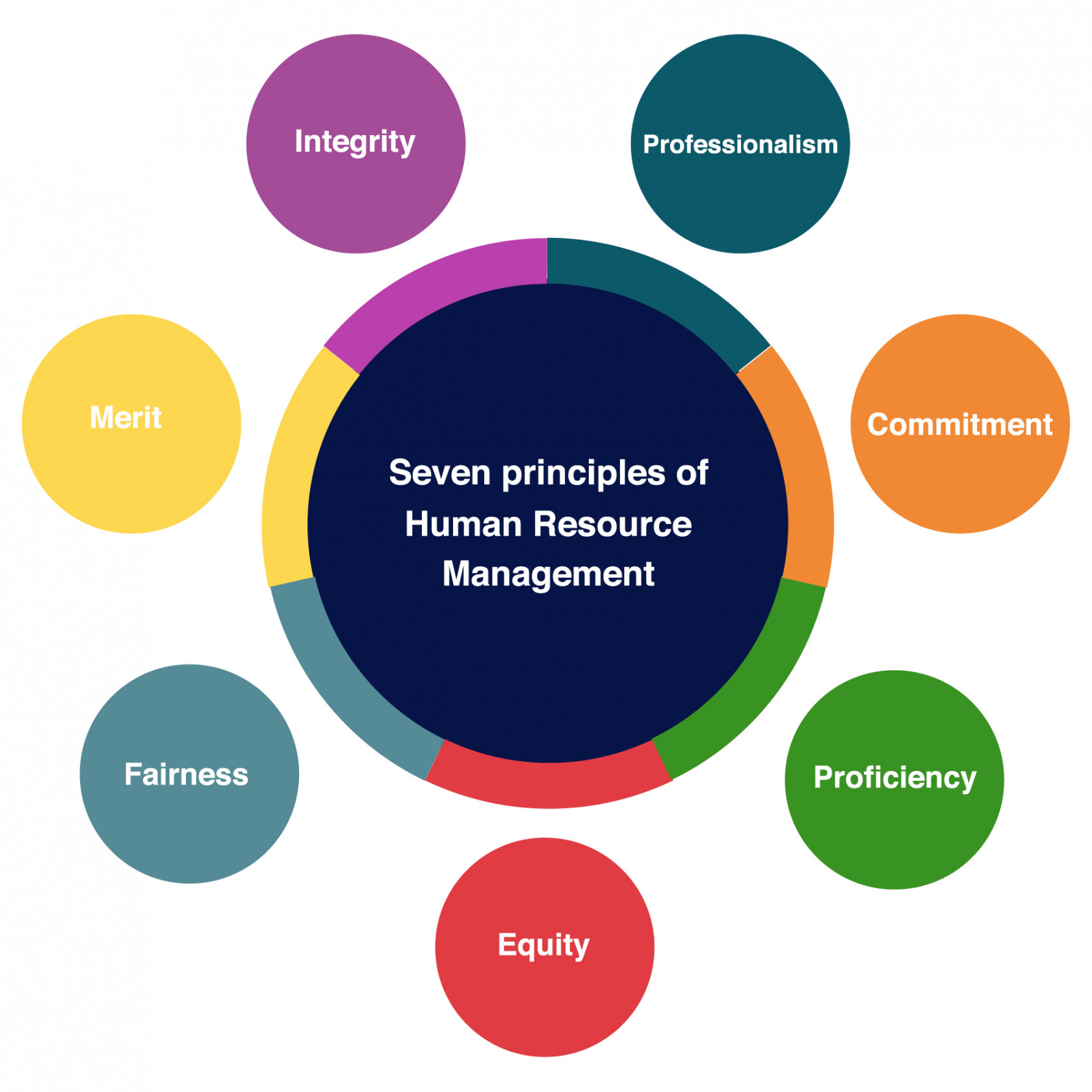About Human Resource Management
Human Resource Management (HR) is a strategic function. It is fundamentally different from Personnel Administration, which is traditionally preoccupied with rules, regulations and the administration of employees.
Under human resource management, people working for an organisation are not viewed as a cost. Rather they are considered an investment and are an essential part of organisational strategy to achieve future success.
Administrative rules and regulations relating to employees are still fundamental to the smooth running of any organisation. However, a strategic approach to human resources means managers must think carefully about the people they employ, ensuring they select staff who enable the organisation to achieve its goals and targets, embrace new technology, make a real difference to society and prepare for the demands of the future.
Modern HR is therefore concerned with recruiting people with the right competencies, making optimal use of them, motivating them for high performance, developing their skills for present and future requirements, nurturing their careers and ensuring their wellbeing in the workplace. All this applies as much to the teaching service as to any other service or sector, public or private.
In Sierra Leone, improving HR in the teaching service will help the government achieve its policy of free and compulsory quality education. To provide quality education, school leaders and teachers must be both competent and motivated. They must have a conducive work environment in which to build their skills, and an environment with appropriate facilities which is safe, healthy, and pleasant to work in. They must have professional support from their superiors and peers, good teamwork and enough job satisfaction and career prospects to remain in the service for a reasonable length of time while being stimulated to develop themselves professionally towards increasing excellence in teaching. All this falls within the scope of HR.
In the teaching service, HR management of teachers must promote equity and fairness in HR processes. HR processes must be transparent and based on objective criteria, without possibility for bias, prejudice or favouritism. HR must ensure equal opportunities in important HR areas such as recruitment, promotion, professional development opportunities etc, irrespective of gender, social or cultural background, or disabilities. In some cases, this would imply the provision of special facilities, for instance for teachers with disabilities. Equity, fairness and equal opportunities are important motivational factors, while the opposite can demotivate and be detrimental to commitment.
Merit is a key term in modern HR, which also applies to the teaching service. It means an employee is recruited, advances and is rewarded based on demonstrated merit in professional performance and behaviour, as defined by clear and objective criteria.
Finally, HR aims at promoting professionalism in the way people work. This means working according to recognised professional standards and competencies. The sense of belonging to a profession and taking pride in that profession implies that a teacher or school leader works with commitment and strives to achieve the optimal professional performance. They develop themselves professionally and continually enhance their proficiency by acquiring new knowledge and techniques in teaching and supporting junior colleagues when required. Professionalism, in the context of HR, implies integrity and adherence to the Code of Conduct.

